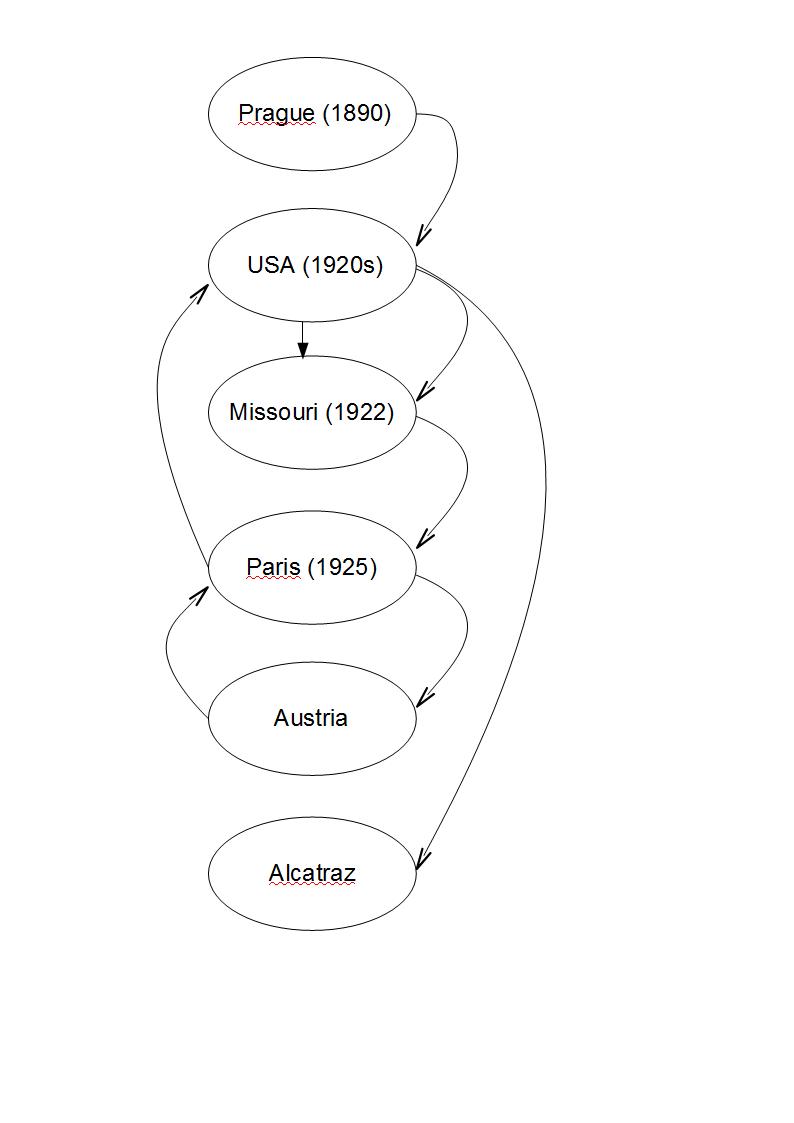Communication » 2A Interacting
Victor Lustig was born in 1890 near Prague in a middle-class family, and learned to speak five languages fluently. However, he soon turned to a life of crime and in the 1920s he emigrated in the USA. There, in 1922, in Missouri, he used his most famous alias: a rich Austrian aristocratic called "Count" Victor Lustig; he paid a bank $22,000 for a very old farmhouse that nobody wanted to buy. At the same time he asked the bank manager to lend him $10.000. The man agreed and they exchanged envelopes. However, the envelope that Victor handed over did not contain any money, and Victor got away with both his original $22.000 and the bank's $10.000.
Three years later he returned to Europe.
One day in Paris, Lustig saw a newspaper article which said that the Eiffel Tower was in poor condition and a few politicians had suggested demoloshing it: this gave Lustig and ingenius idea - to sell the Eiffel Tower.
Firs he asked a forger to make some "official" government notepaper; then, as "Deputy Director General of the Post Office", he wrote to five companies (which he thought might be interested in buying the tower) that the government had decide to demolish the Eiffel Tower and sell the metal from it. The businessamen promised to keep the plan secret because the government's decision was controversial.
When the five company directors made their offers to buy the tower, Lustig chose the highest one, took the cash and escaped to Austria to enjoy his money. But from Paris any newspaper talked about his amzing con because the businesswoman was too emrrassed to tell somebody what had happened.
This induced him to wirte again to five more companies and he sold the Eiffel Tower for the second time. However, this time his victim went to the police and Lustig had to flee back to the USA.
After many more imaginateve crimes and lucky escapes, Lustig was arrested for the last time in 1935, when a judge sent him to Alcatraz prison where he spent the next twenty years. Victor Lustig, the king of the cons, died in 1947.
